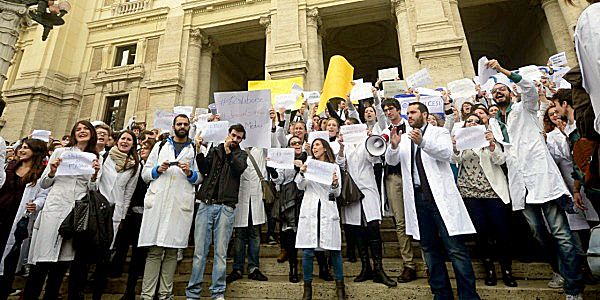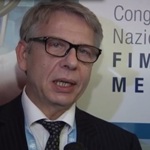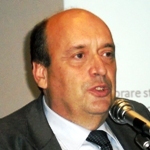
Behind the amendment there is once again the tragicomic idea of the Regions to raise cash and to offload their waste and the costs of regional policy onto patients and doctors, which always remain intact. In short, the Regions are only looking for scapegoats ».
The major trade unions of contracted doctors and employees convened a press conference this morning, with the aim of reiterating their firm opposition to an amendment to the agreement between the State and the Regions, promoted by the latter, which would introduce an unprecedented patrimonial liability for doctors "guilty" of having prescribed services deemed "inappropriate". During the meeting with journalists, the unions of the white coats expressed their concerns not only for the category, but also for the effects that the new financial liability would produce on the National Health Service and on citizens' right to health.
“ The proposal to introduce financial liability for doctors in the event of inappropriate prescriptions makes it increasingly clear that, beyond the virtuosity of individual administrations, the Conference of Regions is absolutely incapable of guaranteeing good assistance - he declared Giacomo Milillo, Fimmg National Secretary –. His attention is focused exclusively on accounting aspects and he is unable to formulate proposals that improve the health system in the future and make it sustainable. It is absolutely necessary for the Government to intervene, with substitute functions, and fill this deficiency which has become more and more evident every day".
The proposal to introduce financial liability for doctors in the event of inappropriate prescriptions makes it increasingly clear that, beyond the virtuosity of individual administrations, the Conference of Regions is absolutely incapable of guaranteeing good assistance - he declared Giacomo Milillo, Fimmg National Secretary –. His attention is focused exclusively on accounting aspects and he is unable to formulate proposals that improve the health system in the future and make it sustainable. It is absolutely necessary for the Government to intervene, with substitute functions, and fill this deficiency which has become more and more evident every day".
“ The fact that the Minister of Health Beatrice Lorenzin said she was against the amendment of the Conference of Regions on the patrimonial liability of doctors who prescribe inappropriate services is a good sign, which goes in the right direction with respect to a wrong proposal and to be rejected - he declared Giampietro Chiamenti, National President of FIMP, Italian Federation of Pediatricians –. A clear intervention by the Government is absolutely necessary in the face of proposals, arrived from the Regions, which risk undermining the cornerstones on which our National Health Service is based ".
The fact that the Minister of Health Beatrice Lorenzin said she was against the amendment of the Conference of Regions on the patrimonial liability of doctors who prescribe inappropriate services is a good sign, which goes in the right direction with respect to a wrong proposal and to be rejected - he declared Giampietro Chiamenti, National President of FIMP, Italian Federation of Pediatricians –. A clear intervention by the Government is absolutely necessary in the face of proposals, arrived from the Regions, which risk undermining the cornerstones on which our National Health Service is based ".
 “Minister Lorenzin's firm and decisive response is good. We hope it will remain unchanged on Thursday after the meeting with the State-Regions Conference – he declared Riccardo Cassi, the President of CIMO –. We can no longer accept the logic of the Regions which, instead of cutting waste, which is there for all to see, choose to cut health services to citizens and to make sacrifices and burdens fall on doctors. How come no sacrifice is required of the rich salaries of the regional councilors and the heads of the regional subsidiaries, and no downsizing is planned with regard to the elephantine regional bureaucratic apparatus? It is always the same who pay for the Regions: doctors and citizens ”.
“Minister Lorenzin's firm and decisive response is good. We hope it will remain unchanged on Thursday after the meeting with the State-Regions Conference – he declared Riccardo Cassi, the President of CIMO –. We can no longer accept the logic of the Regions which, instead of cutting waste, which is there for all to see, choose to cut health services to citizens and to make sacrifices and burdens fall on doctors. How come no sacrifice is required of the rich salaries of the regional councilors and the heads of the regional subsidiaries, and no downsizing is planned with regard to the elephantine regional bureaucratic apparatus? It is always the same who pay for the Regions: doctors and citizens ”.
“ We are aware that every medical act has civil, criminal and tax liability. The unacceptable fact is to try to link the need to accentuate clinical appropriateness to an intimidating attitude towards professionals - declared the National Secretary Anaao Assomed, Constantine Troise –. It is something that does not exist anywhere in the world. Appropriateness is reached through a pact with professionals, not from above, with mechanisms of aggression and intrusiveness. Behind it is once again the tragicomic idea of the Regions to raise cash and to offload their waste and the costs of regional policy onto patients and doctors, which always remain intact. In short, the Regions are only looking for scapegoats.
We are aware that every medical act has civil, criminal and tax liability. The unacceptable fact is to try to link the need to accentuate clinical appropriateness to an intimidating attitude towards professionals - declared the National Secretary Anaao Assomed, Constantine Troise –. It is something that does not exist anywhere in the world. Appropriateness is reached through a pact with professionals, not from above, with mechanisms of aggression and intrusiveness. Behind it is once again the tragicomic idea of the Regions to raise cash and to offload their waste and the costs of regional policy onto patients and doctors, which always remain intact. In short, the Regions are only looking for scapegoats.
 "Proposals such as that of the Regions, to load the financial responsibility on doctors in the event of inappropriate tests is just one of the many examples of how politics evades its responsibilities to unload them on operators and citizens - he declared Robert Lala, national secretary Sumai-Assoprof –. The Minister of Health did well in rejecting the hypothesis of the Regions, but as outpatient specialists we can no longer tolerate the constant attacks on the NHS and on those who work there. The vase is full and today we are here to denounce and make citizens understand that continuing with policies of cuts now means sentencing the end of the NHS ".
"Proposals such as that of the Regions, to load the financial responsibility on doctors in the event of inappropriate tests is just one of the many examples of how politics evades its responsibilities to unload them on operators and citizens - he declared Robert Lala, national secretary Sumai-Assoprof –. The Minister of Health did well in rejecting the hypothesis of the Regions, but as outpatient specialists we can no longer tolerate the constant attacks on the NHS and on those who work there. The vase is full and today we are here to denounce and make citizens understand that continuing with policies of cuts now means sentencing the end of the NHS ".
FIMMG, FIMP, SUMAI, CIMO, ANAAO-ASSOMED Publication date : 21/04/2015
Patrimonial responsibility: the unions of doctors ready to mobilize
 Revision if not even abolition of Title V and interruption of what is the logic of the Regions in terms of NHS. The trade unions of affiliated doctors and employees did not mince words and convened a press conference to announce their disappointment with both the amendment proposed by the Sicilian health councilor Lucia Borsellino to the agreement between the State and the Regions, which would introduce an unprecedented financial liability for doctors "guilty" of having prescribed services deemed inappropriate, and more generally towards a sharecropping system between the Government and the Regions.
Revision if not even abolition of Title V and interruption of what is the logic of the Regions in terms of NHS. The trade unions of affiliated doctors and employees did not mince words and convened a press conference to announce their disappointment with both the amendment proposed by the Sicilian health councilor Lucia Borsellino to the agreement between the State and the Regions, which would introduce an unprecedented financial liability for doctors "guilty" of having prescribed services deemed inappropriate, and more generally towards a sharecropping system between the Government and the Regions.
«A System – reiterated the speakers of the round table – which, although it is among the best in the world, risks collapse due to the fault of the Regions and which, instead, should be managed entirely by the Government and not be subjected to the logic of the State Conference- Regions. «The Conference of the Regions works like a club – he said Constantine Troise, National Secretary Anaao Assomed - but the health councilors do not know the real problems. Behind the amendment there is once again the tragicomic idea of the Regions to raise cash and to offload their waste and the costs of regional policy onto patients and doctors, which always remain intact. In short, the Regions are only looking for scapegoats ».
Along the same lines Giacomo Milillo: «The proposal to introduce patrimonial liability for doctors in the event of inappropriate prescriptions makes it increasingly clear that, beyond the virtuosity of individual administrations, the Conference of Regions is absolutely incapable of guaranteeing good assistance - declared the National Secretary Fimmg, because its attention is focused exclusively on accounting aspects and it is unable to formulate proposals that improve the health system in the future and make it sustainable. It is absolutely necessary for the Government to intervene, with substitute functions, and fill this deficiency which has become more and more evident every day".
For Robert Lala, Sumai-Assoprof National Secretary, it is essential to rethink the pact with the citizens. “We are faced with the death of the right to health – he declared. It is no longer a problem of the NHS, devastated in recent years by waiting lists, but of patients forced to go to the private sector. But how many, except a few rich people, can defend their health? And where is the line between prudence and inappropriateness?” Concerns about the "state of health" of the NHS are also being raised by Cimo and Fimp.
There is a risk of not preserving – he declared Joseph Lavra – the meaning that the art. 32 of the Constitution and which today is truly at risk. Healthcare is funded at 6% against the highest 7% in the rest of the world. And we must take into account in this 6% the famous chapters of waste and rationalization. It is not a solution to condemn nurses to act as doctors. The one put forward by the honorable Borsellino is not a solution which is not clear whether it refers to administrative or prescriptive appropriateness".
In short, for everyone, under penalty of mass mobilization, the need to return to a NHS not fragmented by the various regional models that have failed. The hypothesis, in fact, is to take to the streets in May in the Regions where we vote. For now, the strike has been postponed: "We don't want to harm citizens but protest against those who make wrong choices," they explained.
Rossella Gemma – 21 April 2015 – Doctor33
Prescriptive constraints undermine Fse, Russo (Sit): thus useless electronic file
 «The protocols for prescribing tests? With the forecasts of the state-regions agreement, there is a risk that the health file, in addition to being wrong as it is now, is completely useless because it is less and less rich in information ». The general secretary of the Italian Society of Telemedicine and eHealth, Giancarmine Russo he comments on the willingness of the regions to sanction contracted and hospital doctors on payroll who prescribe tests outside the guidelines that the state-regions conference will issue within 30 days of the entry into force of the agreement.
«The protocols for prescribing tests? With the forecasts of the state-regions agreement, there is a risk that the health file, in addition to being wrong as it is now, is completely useless because it is less and less rich in information ». The general secretary of the Italian Society of Telemedicine and eHealth, Giancarmine Russo he comments on the willingness of the regions to sanction contracted and hospital doctors on payroll who prescribe tests outside the guidelines that the state-regions conference will issue within 30 days of the entry into force of the agreement.
“The data in the electronic health record (ESF) are mainly entered by public structures – says Russo – even if the private sector and the citizen himself sometimes show attention to the insertion of data in health databases. In any case, this should concern us to a limited extent; the Italians themselves were the first to notice the uselessness of the file: out of 4.5 million residents in Emilia-Romagna there are 125,000 open files. As we underlined last year with a monograph written together with the Lavse of the Cnr and edited by Fabrizio Ricci, today the ESF is a very useless collection of electronic documents in pdf with little clinical significance for patient evaluation, so much so that we have proposed a second generation dossier to the institutions". By June, on paper, the regions should create the information channels for the transmission of data from doctors and structures to the ESF, which is declared an essential level of assistance: the region that delays in implementing it would have one 3% less in the 2016 Health Fund allotment .
 Russo returns to the limitations imposed on doctors by the draft in the state-regions conference, which the Minister of Health said he will oppose: «They are unacceptable. The freedom of treatment is limited with subsequent checks while in the area and in general medicine the choices are made a priori, on initial and not very typical diseases, vague and confused symptoms, and only afterwards can it be said that a CT scan or a MRI were not necessary. But according to what criteria? Concepts such as guidelines, standards and protocols are culturally backwards: they start from statistics on large population studies, mass medicine, but in his congress report the outgoing Sit president Gianfranco Gensini underlined how in the future the saving of health services will be possible by first identifying who needs a certain examination and a certain “ad personam” therapy».
Russo returns to the limitations imposed on doctors by the draft in the state-regions conference, which the Minister of Health said he will oppose: «They are unacceptable. The freedom of treatment is limited with subsequent checks while in the area and in general medicine the choices are made a priori, on initial and not very typical diseases, vague and confused symptoms, and only afterwards can it be said that a CT scan or a MRI were not necessary. But according to what criteria? Concepts such as guidelines, standards and protocols are culturally backwards: they start from statistics on large population studies, mass medicine, but in his congress report the outgoing Sit president Gianfranco Gensini underlined how in the future the saving of health services will be possible by first identifying who needs a certain examination and a certain “ad personam” therapy».
Sit also called for a renewal of the AgID at the recent congress in which the physicist Sergio Bertolucci, director of research and scientific computing at Cern in Geneva was elected honorary president (the top management will be defined on 30/5 in Florence but the board is ready ). «The Agency for digital Italy has changed 16 governance in 10 years with an average duration of 7 months. If the body called upon to lead the computerization of the country and not only in health care has this temporal breadth and continuous changes of address, there is a real risk of creating irreparable damage", underlines Russo. «With the lack of digitization, the country loses money, competitiveness and innovation capacity. A decisive change of course is needed in what is increasingly becoming a true national scandal!».





